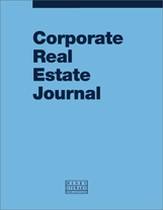The future of the office lies in the village 2.0
Abstract
Developments around the workplace have accelerated fast as a result of the COVID-19 pandemic. Those developments will inevitably influence the commercial property market. Demographic changes will dramatically shift the workspace as baby boomers retire and make place for a new generation. Digitalisation has become democratised. These trends will affect the office of the future, which will need to be a place that offers recognition, inspiration and even a sense of security in the midst of all the upheaval. What then are the consequences for the way real estate is planned, designed, built and operated, if living and working are in transition? A sustainable office or company building is more than a property that scores well with regard to economical energy management. The building, maintaining and exploitation of properties all require a holistic approach. The most important consideration when building new properties is that buildings have a huge influence on the well-being of their users. Real estate should no longer lag behind, but become leading instead. If you believe the environment is a form of organisation as well, and that buildings can make people sick as well as productive and happy, it is about time the real estate community finally uses its enormous power as a force for good to support and boost the transformation of the jobs market and society as a whole. An open, village-like environment in which pupils and apprentices can learn from each other and work and leisure time blend together does not benefit from a rigid, hierarchical structure. In order to give the new villages 2.0 a chance, a first, very practical step must be taken. Therefore an urgent appeal must be made to the generation that is now at the helm. These baby boomers are about to retire, but carry the special weight of stewardship on their shoulders.
The full article is available to subscribers to the journal.
Author's Biography
Petra Groeneveld is an experienced director of real estate and facility management. In her 25+ year career she has gained worldwide experience in leasing, furnishing and facilitating offices for organisation such as ING, BHPBilliton and Expedia. With her teams, she has won international awards such as the special jury prize for the best interior design and holistic facility management concept. Health, safety, environment and community have always formed an integral part of her responsibilities. Currently Petra works as Director IFM at EQUANS.
Rob Veeke is an independent consultant in the field of purchasing and facility management. For more than 30 years, he has guided organisations in both the private and public sectors in optimising their business operations. He is a former partner at PwC, co-founder of the Dutch consultancy and research firm Significant, and author of several books and articles in the field of procurement and facility management. In particular, he supports organisations in developing strategy and vision in the field of business operations, drawing up the associated change agenda and guiding the change team in realising this agenda.
Jaap Van Muijen Muijen is a Professor in psychology at Nyenrode Business Universiteit. His research interests include personality, leadership and organisational culture. On behalf of DPG he has executed the National Salary Research in the Netherlands since 2013. As a (co-)author he has published books and articles on these topics in various journals, including International Journal of Selection and Assessment, Journal of European Work and Organizational Psychology, Journal of Occupational and Organizational Psychology, Journal of Leadership Studies and International Human Resource Management.
